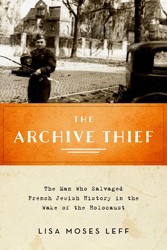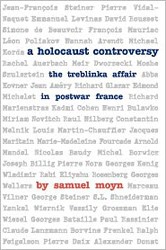Louis Darquier failed at everything he undertook except anti-Semitism. In 1942 he was appointed commissioner for Jewish affairs in Vichy France, charged with the management of Jews and Aryanization of Jewish property. He was largely responsible for the deportation of 75,000 Jews, including more than 11,000 children. After D‑Day he escaped to Spain, where he lived a long and comfortable life although a French court sentenced him to death in absentia in 1947 and stripped him of his citizenship.
The sordid story of Louis Darquier — he added the aristocratic flourish de Pellepoix to his name — might have remained forgotten if Carmen Callil, a prominent British editor and publisher, had not seen his name in a documentary on occupied France. She had first heard the name Darquier de Pellepoix just a year before, at the funeral of her long-time psychiatrist, Dr. Anne Darquier. Speaking of her parents, Anne Darquier had once said to Callil, “There are some things and some people you can never forgive.” These words, with the discovery of Anne’s father, set Callil on a decades-long search for Louis Darquier.
To find Darquier, Callil studied archives and histories, interviewed relatives and acquaintances, and gained access to private letters and journals across three continents. The result of her extraordinarily extensive research is a searing record of the tumult that was France from the end of World War I until after World War II. Torn by internal factions, France surrendered to Germany in 1940 under the illusion that the country would be revitalized. In this deluded and divisive climate, Darquier realized his mission of purging France of Jews and at the same time enriching himself.
Hatred of Jews and the constant need for money dominated Darquier’s life. Never truly employed, Darquier drifted for years on elaborate fictions, supporting his high living by begging for handouts from his family. After some time traveling and in England, he returned to France and became active in extreme right-wing politics; soon he was a popular ultranationalist known for his vicious attacks — physical as well as polemic — on communists, Free Masons, and Jews. His anti-Semitic stance attracted German attention and financial backing and ultimately led to his appointment as commissioner.
Despite his zealous pursuit of Jews and passionate nationalism, Darquier was always regarded with suspicion by Vichy as a Nazi collaborator and by the Germans as ineffective and dishonest. Contentious, demanding, and vain, a sloppy administrator who seldom turned up at his office, Darquier used his position not only to round up Jews but also to exploit them to finance his expensive life. In 1944 the Germans forced him to resign, and Darquier soon disappeared from public life.
Here Darquier’s story as the engineer of the French Holocaust ends, but Callil picks up a personal strand as she unravels the sadness and silence that she saw in Anne Darquier. After the war, Anne, now a teenager, met the parents who had left her as an infant when they went to France, turning her over to an English nanny who brought Anne up in wartime English deprivation. Disgusted by her alcoholic mother and the shocking knowledge of her father’s wartime career, Anne turned her back on them. But her grandmothers, aunts, and uncles offered emotional and financial support and helped her realize her ambition to become a doctor. With great determination she overcame her inadequate education and built a successful career and full life birthday, by the demons that haunted her. She was found dead on her bathroom floor, felled by depression, prescription drugs, and alcohol.
Callil’s straightforward account of Louis Darquier’s career contrasts with the story of his daughter. Equally well researched but more intimately experienced, Anne’s story becomes the personal template on which Louis Darquier’s heinous career played out. Anne suffered the inhumanity her father masterminded. Untouched by remorse, he outlived his daughter and after her death bought the only home he ever owned; she died intestate, and he inherited her estate.
A fluid and compelling documentation of Vichy France and the political tensions that gave rise to it, Bad Faith reveals a sorry and savage period of French history and a petty but brutal bureaucrat who wrought vast devastation. Appendices, bibliography, extensive notes, index, photographs.
Maron L. Waxman, retired editorial director, special projects, at the American Museum of Natural History, was also an editorial director at HarperCollins and Book-of-the-Month Club.





